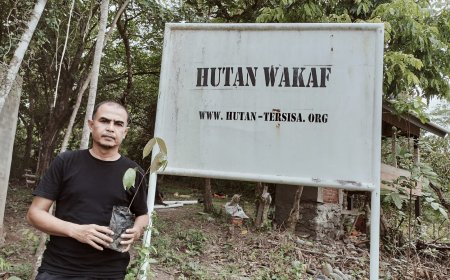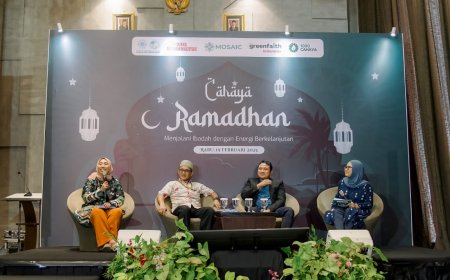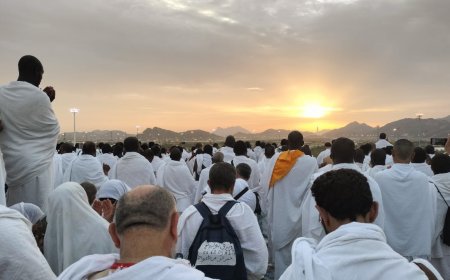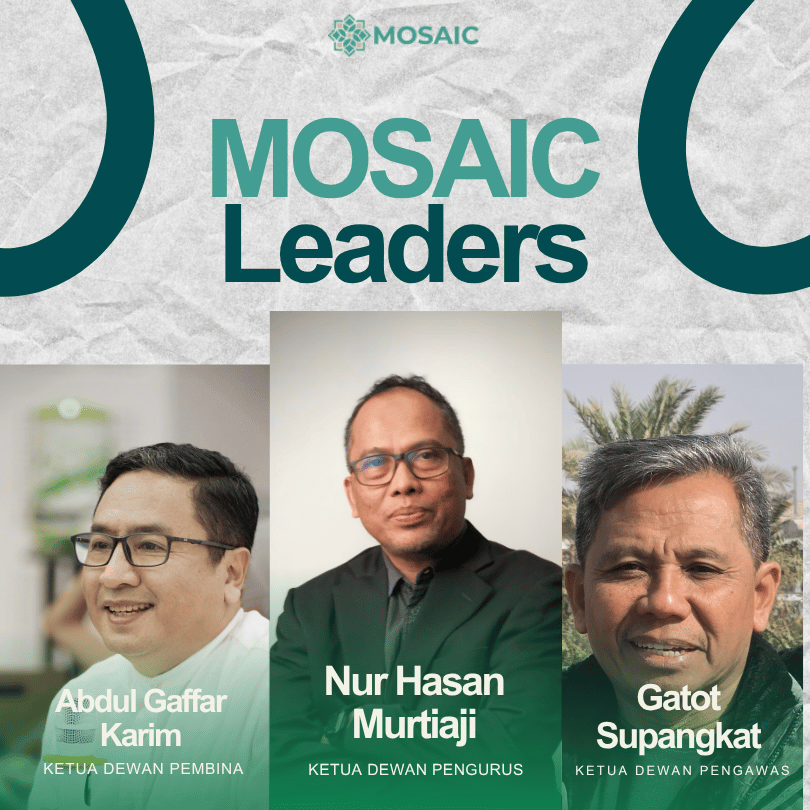Encourage just energy transition in west java
The fight against climate change requires technological innovation, social justice, and moral support from faith communities.
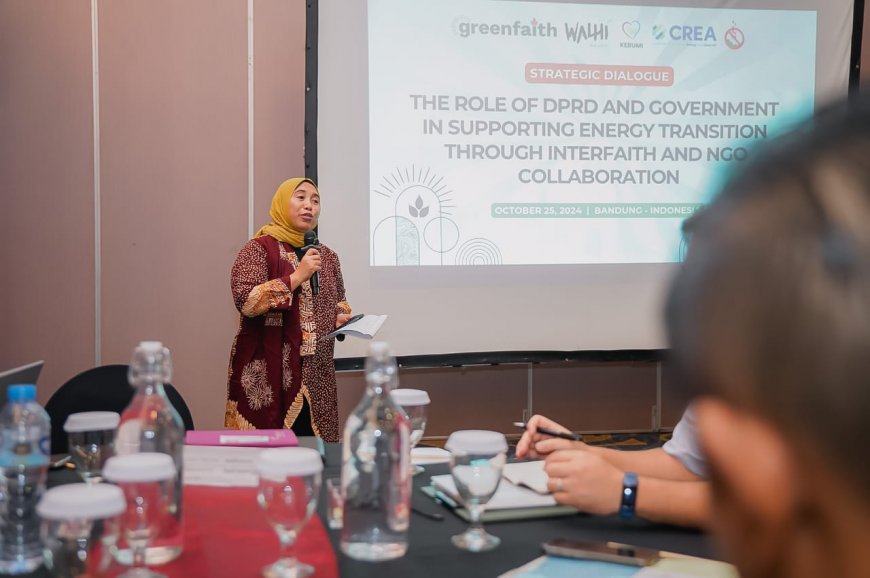
MOSAIC-INDONESIA.COM, BANDUNG – As the world grapples with urgent climate change challenges, Indonesia actively contributes to the global movement toward climate justice. Through collaborations with various organizations, faith communities, and governmental bodies, GreenFaith Indonesia (GFI) promotes a transition to cleaner, fairer energy solutions.
At Friday, October 25th, 2024, GreenFaith Indonesia, in partnership with GreenFaith Japan and WALHI West Java, hosted a dialogue on just energy transition. The event in Bandung featured speakers from the West Java Provincial DPRD, LBH Bandung, academics, Initiative Association representatives, and non-governmental organizations.
In her opening remarks, Hening Parlan, Director of GreenFaith Indonesia, stated that GFI is focused on a fair and responsible energy transition. This effort is not undertaken alone; GFI collaborates with NGOs, community groups, and the government to accelerate Indonesia’s shift toward eco-friendly energy.
“As people of faith, it is our duty to care for the Earth,” Hening emphasized, highlighting that all religions call on their followers to protect the planet as a shared moral responsibility.
One significant initiative is the planned closure of coal-fired power plants in Indramayu and Cirebon. Success in shutting down these plants could set a powerful example for other countries, demonstrating Indonesia’s commitment to reducing carbon emissions.
Fletcher Harper, Executive Director of GreenFaith International, explained that GreenFaith is a multi-faith organization focusing on climate justice.
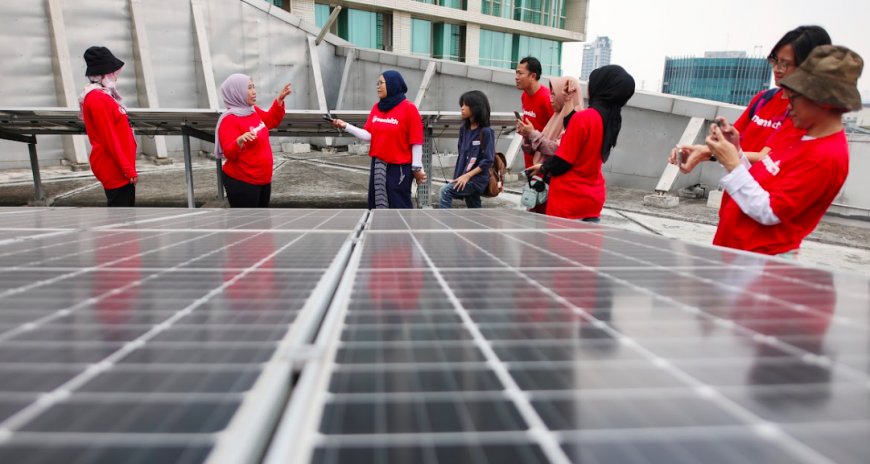
“Climate change is a real global challenge, and we cannot turn a blind eye. The entire global community must face this crisis together,” said Fletcher.
According to him, climate change is not only an environmental issue but also a moral imperative that all faith communities must address.
Yoshiro Sada, Director of GreenFaith Japan, who joined nine representatives from Japan and Malaysia, shared his insights from visits to Jakarta, Indramayu, and Bandung.
“We learned a lot from this visit. At the Jatayu Community, we saw firsthand the impact of coal power plants on the environment, agriculture, and marine life, which is deeply heartbreaking,” Yoshiro shared, pledging to bring these lessons back to faith institutions in Japan to discuss the development of more sustainable energy solutions.
On the same occasion, Viktor Permana from Padjadjaran University presented recent survey results showing that climate change is now a primary concern for West Java residents ahead of the 2024 regional elections. The survey revealed that 84.1% of respondents support energy transition and hope that local leaders will incorporate clear environmental agendas into their campaigns.
From a policy standpoint, Wulandari from the Initiative Association revealed that West Java's public budget for renewable energy is still minimal compared to revenues from fossil fuels. “Regional revenue from fossil fuels reaches Rp 2 trillion, while renewable energy contributes only 0.5% of the total local revenue,” said Wulandari. She emphasized that energy transition faces considerable funding and budget allocation challenges.
The West Java Provincial Energy and Mineral Resources Agency has recorded that climate change threatens the province’s northern coastal areas, where around 700 hectares have been submerged due to rising sea levels. West Java’s regional regulations target a renewable energy share of 20% by 2025 and 28% by 2050, as outlined in Regional Regulation No. 2 of 2019.
On the ground, communities continue to fight for environmental justice. Maulida from the Bandung Legal Aid Institute (LBH) explained that they have been supporting communities in filing environmental permit lawsuits against coal power plants in Cirebon and Indramayu. LBH also actively raises public awareness through social media and campaigns on the dangers of coal plants and the importance of renewable energy.
Ahab Sihabudin, a member of the West Java DPRD from the PKS faction, stressed that energy transition policies must be realized at the regional level, not only discussed at the national level. “The renewable energy potential in West Java reaches 200 gigawatts, and the central government needs to facilitate this transition,” he stated.
Meanwhile, Heri Ukasah from the Gerindra faction expressed his support for the energy transition efforts. “The DPRD is responsible for West Java's environmental well-being, so we must fully support this transition,” he added.
However, a key issue in this energy transition is the impact on regional revenue. Motor vehicle taxes are currently the largest source of local revenue. Transitioning to electric vehicles, which are not taxed, could reduce regional income, which must be considered going forward.
Confronting these challenges, Fletcher from GreenFaith International emphasized the importance of cross-sector and cross-border collaboration. The fight against climate change requires technological innovation, social justice, and moral support from faith communities worldwide.
“Young people play a vital role in this struggle, and their awareness in caring for the Earth will be a powerful force for environmental sustainability,” he noted.
This journey is not an easy one, but GreenFaith and its community will continue to fuel hope. The spirit of solidarity and climate justice for all will serve as a strong foundation in the fight against climate change, aiming for a brighter and more sustainable future for generations to come.*

